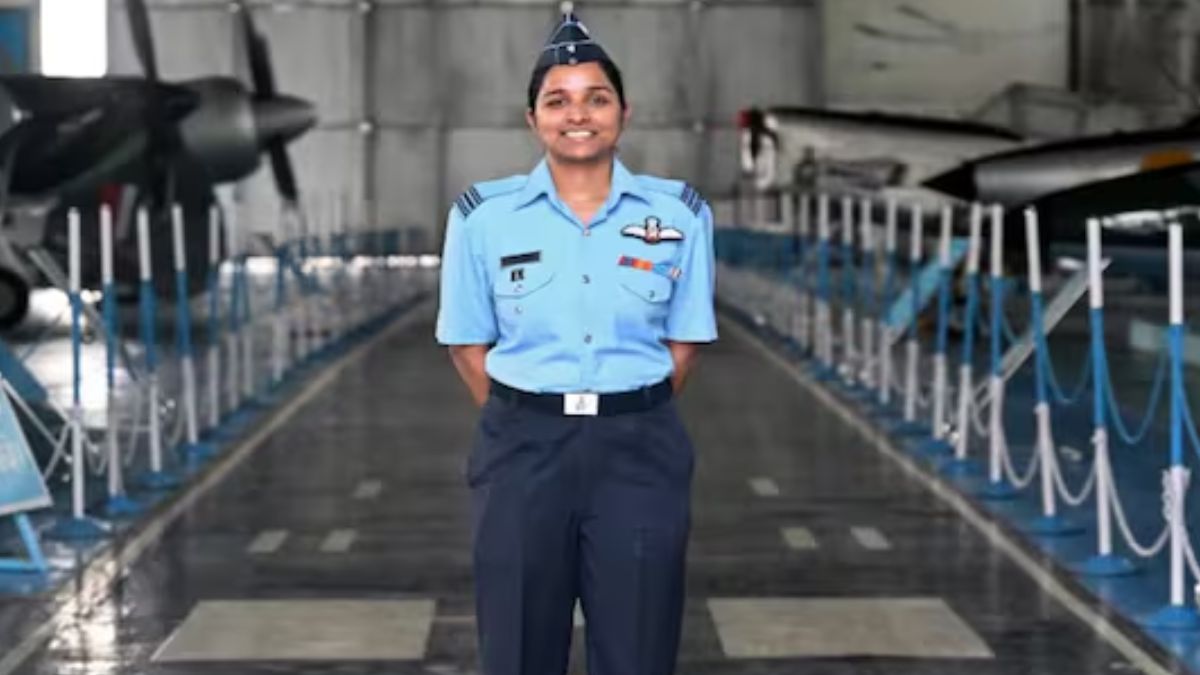As tensions between India and Pakistan escalate, social media has been flooded with fake news and viral misinformation, fuelling confusion and fear among citizens.
One such false claim that gained traction on Saturday alleged that Indian Air Force pilot, Squadron Leader Shivangi Singh, had been captured by Pakistani forces.
The rumour, which spread rapidly across multiple platforms, falsely stated that Singh was arrested near Sialkot after her fighter jet was shot down. Some users even circulated an unrelated video in an attempt to show her supposed capture.
However, the government’s fact-checking arm, PIB Fact Check , swiftly debunked the viral claim.
The agency also urged citizens to be vigilant, avoid forwarding such unverified content and rely only on official updates.
But who is IAF pilot Shivangi Singh? Why was her name caught in the fake news mess? Here’s a closer look.
Becoming India’s first female Rafale fighter pilot
Squadron Leader Shivangi Singh holds the historic distinction of being India’s first woman to fly the French-made Rafale fighter jet. She is part of the prestigious Golden Arrows Squadron of the Indian Air Force, based in Ambala, Punjab.
Her dream of flying began in childhood. A visit to the Air Force Museum in New Delhi with her parents left a lasting impression. She once recalled how she “gawked” at the aircraft and “immediately knew that [she] wanted to become a pilot.”
Hailing from Varanasi in Uttar Pradesh, Singh took her first steps towards that dream by joining the National Cadet Corps (NCC) Air Wing during her graduation at Banaras Hindu University (BHU).
With a strong academic record and unwavering passion, she then made it to the Indian Air Force Academy in Hyderabad, where she underwent rigorous training to become a fighter pilot.
Singh was commissioned into the Indian Air Force in 2017, as part of the IAF’s second-ever batch of women fighter pilots — a milestone in itself, given that it took the force over two decades to induct women into combat flying roles.
By 2023, official figures showed that over 1,600 women officers were serving in the Indian Air Force, including many pilots.
“There have been many of us,” Singh told AFP. “This not only reflects modernisation (of our society) but also the fact that we can now realise our dreams.”
Flying Rafale and guarding the borders
The first time Singh took the controls of a fighter jet, a MiG-21, was when she “realised how much skill it takes to control” to fly.
In 2020, after clearing a competitive evaluation, she was chosen for Rafale training, an advanced programme that involved simulator sessions with French instructors.
“I learned something new every step of the way, be it flying the MiG-21 Bison aircraft or the Rafale fighter aircraft,” she told India Today.
Her training focused on mastering the Rafale’s high-tech systems, including its Thales RBE2 AESA radar and precision weaponry. This prepared her for complex missions, including those under Operation Sindoor.
Singh has since flown missions in sensitive regions like eastern Ladakh and the Line of Actual Control (LAC), where her skills and the Rafale’s capabilities were put to the test amid tensions with China.
She even represented India at international military exercises, such as the prized Exercise Orion in France in 2023, when the Rafale saw its first-ever foreign deployment by the IAF.
Aiming for space
Singh was among the first to try the new Rafale jets. But her dreams are even bigger.
“I succeeded in a field that was long reserved for men, and if I succeeded, then women can now work in any sector,” she said. “I want to be an astronaut,” she told AFP. “So let’s hope.”
With input from agencies
)